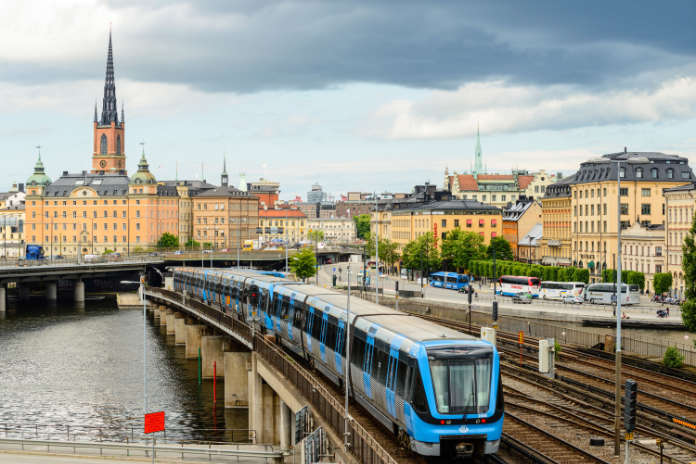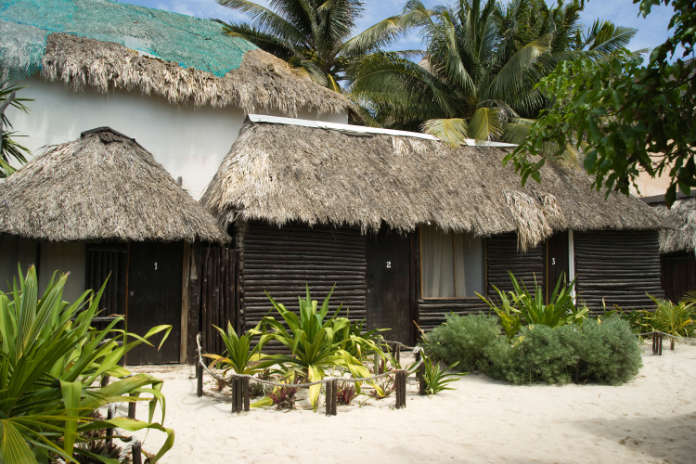Being unable to travel for the past two years has had so many of us itching to hop on a plane, take some time off and explore. But, in the last few years, our priorities have changed, and we’ve become much more aware of the impact our air miles have on the rest of the world.
Sustainable travel tips
According to new research by Booking.com, 71% of UK travellers have revealed sustainable travel is important to them. So, if you want to see the world and damage it as little as possible, here are five simple steps to start with.
1. Stay somewhere that cares
The survey discovered that 62% of travellers intend to stay in sustainable accommodation at least once in the coming year. But how do you even know where to start looking for somewhere that isn’t unsustainable?
View this post on Instagram
Well, you can look out for Travel Sustainable badges on booking sites and even search for specific ecohotels. Ecohotels are classified as such because they have a strong commitment to limiting their impact on the environment and are doing their bit in the fight against climate change.
However, as Charlie Cotton, founder of sustainable travel consultancy ecollective says, “There’s a lot of greenwashing in this field. If they have an ‘eco’ certification or badge verified by an external body, that’s a good start. If they use renewable energy, recycle and serve local food, then they’re on the right track.”
2. Think about your transport

In all honesty, you can’t fly sustainably. According to Cotton, there is lots of amazing research and development happening in sustainable aviation fuel, but we’re a long way from it being used in commercial flights.
“Fly less – if at all. Take the train, go on fewer, longer holidays. Choose holiday companies that are committed to reducing their carbon emissions.”
A lot of sustainable travel is just about research, so if this is something you want to commit to, spend as much time looking into your options as possible. When you are away, consider using trains as much as possible, avoid domestic flights and use electric vehicles. The less we are putting in the ocean, the better.
3. Pack with less plastic

If you’re travelling with limited luggage and space, you might be tempted to invest in some of those tiny travel-sized toiletries and cosmetics. You’re only allowed so much in the way of liquids for a carry-on, so it makes sense, right? Well, not when each tiny thing is almost entirely made of plastic, and it might not be recyclable.
Founder and CEO of regenerative cosmetics innovator Ethique, Brianne West advises: “When you travel, pack with thought. It’s easy to open up a suitcase and throw in everything you own. With a little more thought, you’ll have less to lug around, and [can help] save the planet at the same time – transporting a lighter bag will burn less fossil fuel. To do that, pack multi-use products, and cut down on liquids.”
She explains plastic products are not the way to go, “Single-use plastics are associated with mining and extraction, choking oceans and sea life, not to mention the fact it takes thousands of years to biodegrade. On the other hand, every single Ethique product is completely plastic free and, as a result, one of our shampoo bars has just 8% of the carbon footprint of the equivalent liquid product.
View this post on Instagram
“The large footprint of bottled products comes primarily from the plastic packaging, 150g of carbon dioxide is released just to make one 25g plastic bottle.”
4. Cut the pre-trip shop
We all want to look lovely on holiday, with new swimwear or sandals, maybe some shorts or a sundress. But, consider investing in a few better quality, sustainable pieces when you shop – ones you’ll wear when you get home, rather than cheaper, fast-fashion items.
View this post on Instagram
5. Go when it is quieter
Overcrowding can be dangerous for local communities, wildlife and pollution. If you can, avoid peak times like August and Easter, suggests Cotton. And if you can’t, due to school holidays or diary restrictions, “visit less popular destinations, and travel off the beaten track to lesser-known places”.

You will get the chance to see more of the world while also keeping your environmental footprint in mind.































































